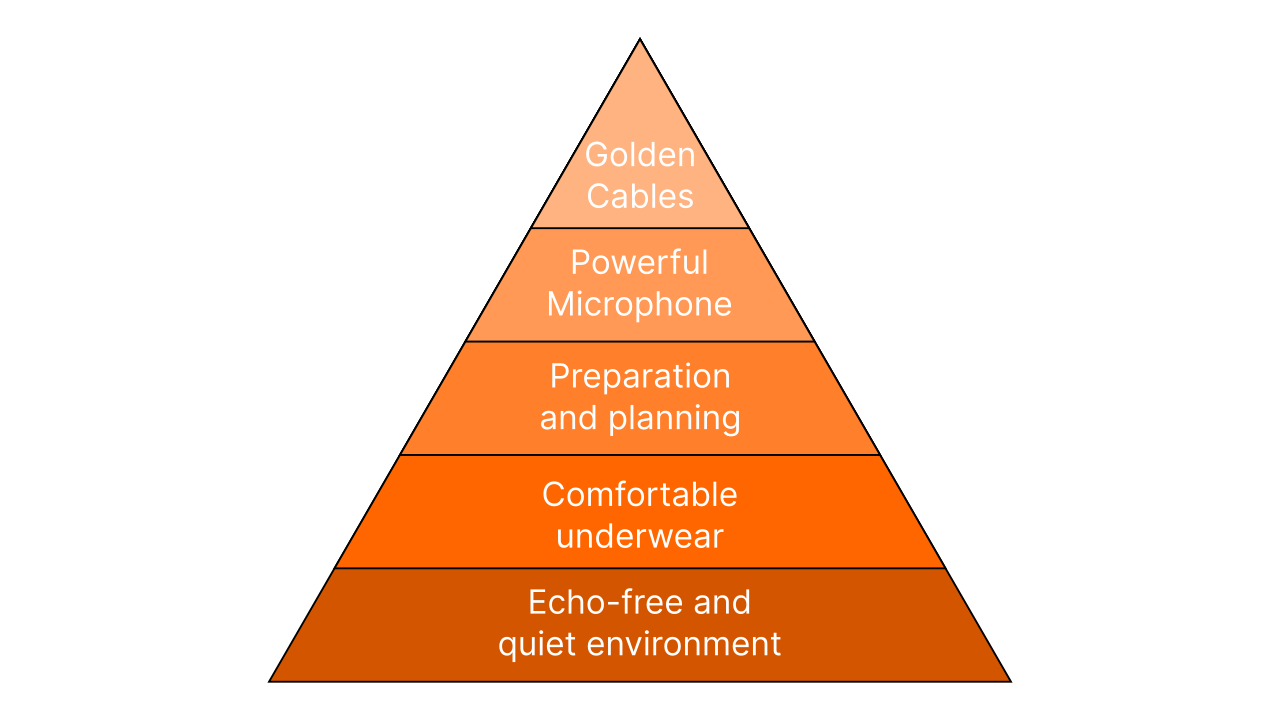
Create, distribute and interact. Take control thanks to podcasting.
Podcasting has become a pivotal medium for sharing stories, knowledge, and insights, transcending the traditional boundaries set by mainstream media.
The Art and Craft of Podcasting
Podcasting is a unique form of media that offers creators the freedom to explore diverse topics in formats that range from highly structured to conversational improvisation. The power of podcasting lies in its ability to connect with niche audiences, providing a platform for voices that might otherwise go unheard in conventional media channels.
Tools of the Trade
Digital Audio Workstations (DAWs)
Efficient podcast production relies heavily on robust editing software. Programs like Audacity provide beginner-friendly interfaces, while Ardour caters to those looking for advanced multi-track editing capabilities. These tools are essential for cutting out silences, managing sound levels, and integrating multiple audio tracks seamlessly.
Open Source Platforms
Platforms like Castopod empower podcasters to distribute their content without relying on third-party services. Its integration with open protocols like ActivityPub enables a decentralized approach to sharing content, ensuring creators retain control over their distribution and audience engagement.
Open-source software offers podcasters a vast array of tools to enhance every aspect of podcast production, from recording to distribution. These tools not only support the pyramid's layers but also empower creators with more control and flexibility over their projects.
- Recording and Audio Processing: Ubuntu Studio, PipeWire, and Jack Audio provide robust platforms and frameworks for managing and processing audio, essential for high-quality recording.
- Communication Platforms: Tools like Mumble, BigBlueButton, Jitsi Meet, and Jami offer reliable solutions for recording remote interviews or collaborative podcasting, ensuring clear audio communication.
- Editing Software: Audacity, Ardour, and Zrythm are powerful editing tools that allow detailed manipulation of audio files, making it possible to achieve professional sound quality.
- Broadcasting and Miscellaneous Tools: OBS (Open Broadcaster Software) and Gnome Sound Recorder, mhWaveEdit serve broader broadcasting and simple recording needs, catering to various levels of podcast production.
- Voice Technology and Automation: Innovations like Linto and Whisper assist in transcribing and automating parts of the podcasting workflow, integrating cutting-edge voice recognition technologies.
- Content Management and Publishing: Platforms like Castopod, WordPress with podcasting plugins, and Podcast Generator simplify the podcast publishing process, providing podcasters with full control over their content distribution.
- Podcast Listening Apps: Open-source applications such as AntennaPod, Podverse, Escapepod, and Podcini offer listeners diverse options for accessing podcasts, enhancing audience reach and engagement.
These open-source resources support podcasters at every step of their journey, aligning with the "Podcasting Pyramid" to streamline production and maximize the quality and reach of their podcasts. This holistic ecosystem not only simplifies the technical challenges of podcasting but also nurtures a vibrant community of creators and listeners.
Hardware Essentials
The quality of recording equipment can significantly affect the clarity and professionalism of a podcast. While starting with basic microphones and built-in computer sound cards is feasible, investing in high-quality microphones and external sound cards can greatly enhance audio quality. High-performance mics ensure that the voice is captured clearly, minimizing background noise and echo.
The Podcasting Pyramid

Podcasting can sometimes be an intimidating endeavor, especially when it's hard to determine what aspects are most crucial for success. Inspired by Maslow's hierarchy of needs, the "Podcasting Pyramid" offers a structured approach to prioritize the essential elements of podcast production. This pyramid helps clarify the path from foundational needs to the finer details that elevate a podcast's quality, outlined as follows:
- Echo-Free and Quiet Environment: The base layer ensures that recordings are clear, free from background noise, and other auditory distractions.
- Comfortable Underwear: Recognizing the importance of comfort during long sessions, this level emphasizes practical considerations like wearing comfortable clothing.
- Preparation and Planning: This crucial middle layer underscores the need for careful planning and organization to ensure content is coherent and engaging.
- Powerful Microphone: Moving up the pyramid, the focus shifts to technical necessities, with a powerful microphone essential for capturing high-quality sound.
- Gold-Plated Cables: At the pinnacle, the use of gold-plated cables represents a commitment to the highest audio transmission quality, ensuring every detail is preserved. If you don't know how to spend $50, buy some comfortable underwear instead.
Philosophical Dimensions of Podcasting
The ethos of podcasting is deeply rooted in principles of decentralization and accessibility. Emphasizing open standards like RSS feeds and supporting federated networks through ActivityPub, podcasting advocates for a web environment where content and data are not monopolized by a few large platforms. This approach not only fosters a diverse and vibrant digital ecosystem but also aligns with the broader goals of digital sovereignty and community empowerment.
Common Challenges and Solutions
Technical Hurdles
One of the most common issues podcasters face is technical errors during recording, such as failing to press the record button or selecting the wrong microphone input. Environmental factors also play a critical role; a poorly chosen recording environment can lead to subpar audio quality due to echo or background noise.
Strategic Practices
To avoid common pitfalls, podcasters are advised to conduct thorough pre-recording checks, including sound level adjustments and environment assessments. Regular testing of equipment and backup recording setups can also mitigate potential problems.
Future Directions in Podcasting
Looking ahead, podcasting is set to continue evolving with advancements in technology and the growing community of content creators. The integration of AI-driven tools for tasks like transcription and editing is likely to streamline production processes further. Moreover, as the global conversation around digital rights and open internet standards progresses, podcasting stands as a testament to the potential for a more equitable digital future.
Conclusion
Podcasting is more than just a medium; it's a movement towards more open, accessible, and interconnected forms of media. For anyone looking to enter the world of podcasting, understanding both the technical aspects and the underlying principles of digital distribution is crucial. By embracing the tools and practices discussed, podcasters can create meaningful content that resonates with audiences and withstands the challenges of a rapidly changing digital landscape. Whether you're starting your first episode or looking to refine your production techniques, the world of podcasting welcomes all who are ready to share their voice with the world.
Going further
Dive into the world of open source podcasting with this video from the talk given on May 26th, 2024, at the Open Source Software Days in Lyon, France, featuring Benjamin Bellamy of Castopod and Walid Nouh from the podcast "Projets Libres".





